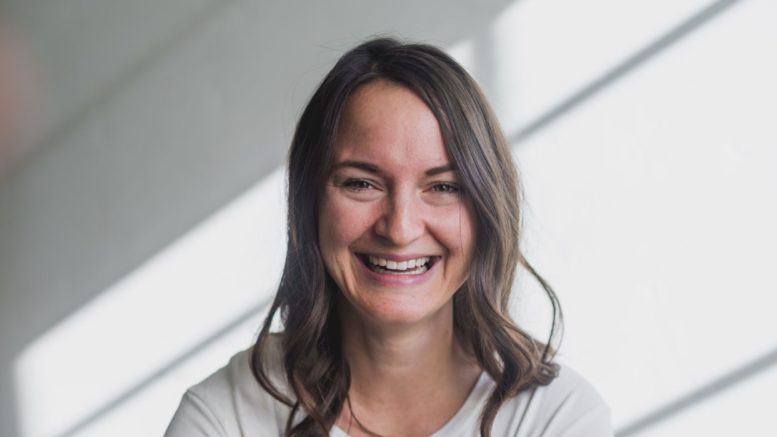A doula talks about what it’s like providing pregnancy support during a pandemic
Doulas, professionals who provide support to pregnant women throughout the nine-month process, have traditionally provided many of their services in person, helping with emotional support, encouraging a baby’s proper position in the womb and aiding families create a birth plan. Doula Shalin Butterworth of So Zen Birth Services discusses the differences between a doula and a midwife, and how doulas’ roles have changed since the emergence of COVID-19.
Let’s start with the question you’re probably asked most: What’s the difference between a doula and a midwife?
A midwife is a medical professional. They are trained in understanding and supporting normal, low-risk pregnancy and birth, so they are medical providers. They not only have advanced training in supporting birthing people, but also they are able to provide newborn care.
On the other hand, doulas are non-medical professionals. While midwives are providing the medical care, we’re on the other side of that, really, supporting emotional well-being, the emotional and physical state of a pregnant family or laboring person. So we do things like provide emotional support, emotional encouragement, reassurance.
[Doulas also provide] informational support and resources … That really means helping parents navigate the maternal care system, or the hospital system, informing them that they always have the right to refusal. There’s something called informed consent, which means that before they make a decision on where they want their birth to go as a medical action, they would receive information about whatever’s being suggested, and they make an informed decision on their care based on knowing what the information is.
A big component of that is that “No” is [a] complete sentence. They have the right to refuse any type of service. And that we don’t lose our human rights when we enter the hospital.
How do doulas and midwives work together?
Midwives are also amazing at supporting the family holistically, which means medically, emotionally, physically. The reason midwives and doulas work so well together is that the midwife is there to make sure that mom and baby are safe and healthy from a medical standpoint, and that means that the doula can also be there to make sure that they’re safe and healthy from an emotional standpoint. So it’s a very cohesive team. I’ve had the honor of working in many home birth settings where it shines—that type of care—because the family is supported, entirely.
Normally a lot of the support you would offer is in-person. Have you had to shift any aspect of your work due to the pandemic?
Normally, yes, a lot of my job is in-person, although we do a lot of phone, or texting, or emailing as well. So there’s a lot that goes into it. What has changed as a result of shelter-in-place and the orders to quarantine is that prior to this, I was doing two prenatal visits in the home of the family that’s preparing for birth. We have had to move the prenatal visits to an online platform … With what doulas do a lot of the time, myself included, is we will go to families’ homes … and help them labor at home as long as possible to keep them comfortable … and to hopefully reduce risk of interventions, things like that, that come along with going to a hospital earlier in labor.
Some doulas have chosen not to do that anymore, so they are not going to families’ homes. They are doing birth support completely through video conferencing. I am following the lead of the families I’m supporting, and so far that’s looked like me joining them in person at home, to help them stay at home as long as possible … I am honoring safe guidelines, and making sure if the family wants gloves, and masks and everything like that, that we’re doing that.
Postpartum visits are being done virtually, just to limit exposure, but for the most part, I’m getting feedback that we’re still able to provide rather seamless care to families, even primarily through videoconferencing and phone and text support. Doulas are also providing continuous video support or phone support while families are in the hospital.
Have you encountered resistance from any health care providers for offering that mid-birth experience?
I actually have not. We have not been met with any resistance … I’ve had nurses moving the phone around for me while I’m on FaceTime so that I can be next to the families, so they can hear me. It’s been a very respectful environment and friendly exchange between the providers and myself.
How does one find a doula that can make what’s currently a largely-digital process go smoothly for them?
What I would love all families to know is that doula support does not start when the person goes into labor. Doula support starts as soon as the families find out they’re pregnant … It isn’t just about showing up at the hospital and getting that in-person support from the doula. It’s about months of working towards learning what their options are, developing a birth preferences list or birth plan … And, learning how to navigate the system and to find a provider that is truly supportive of them, and will provide that family-centered care that everyone deserves.






Be the first to comment on "15 Minutes: Shalin Butterworth, doula"